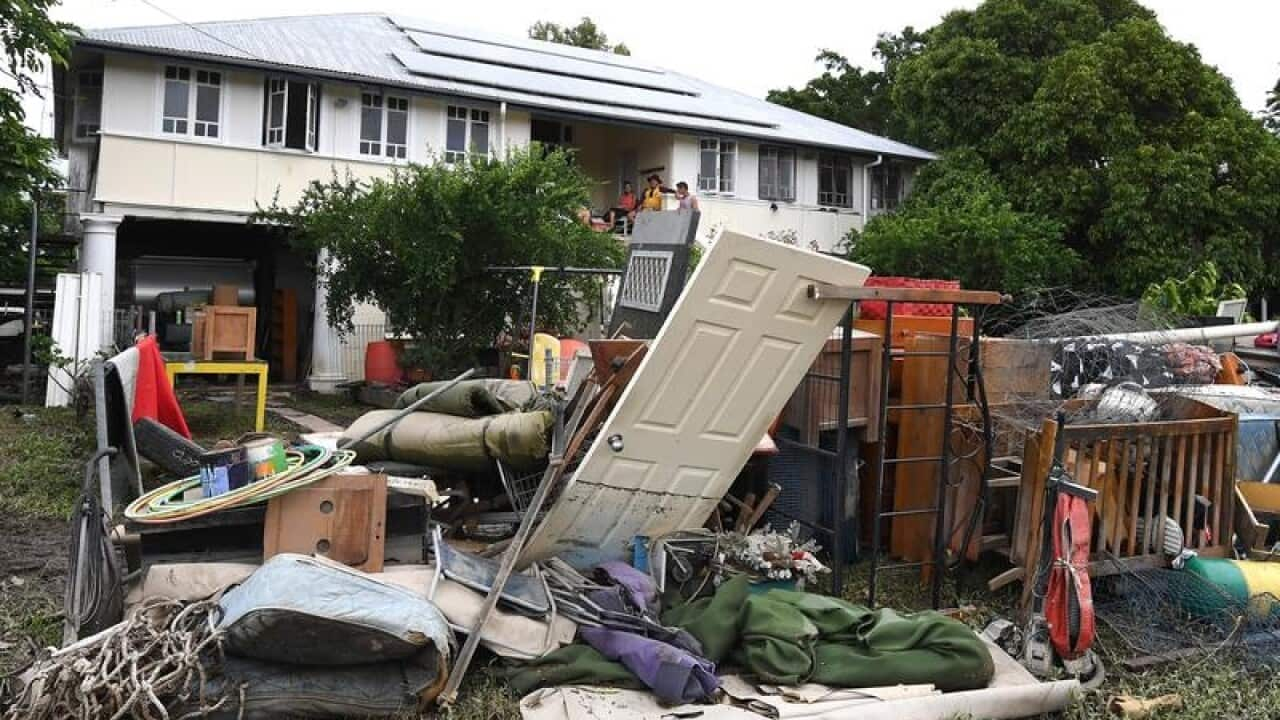Some $571 billion in value could be wiped from Australia's property market over the next decade due to the impact of climate change and extreme weather, a new report warns.
The Climate Council report, which uses modelling based on a global "business-as-usual" trajectory, predicted extreme weather events would see home insurance premiums rise which would, in turn, lead to a loss of property value.
It suggested one in 19 property owners would face the prospect of "effectively unaffordable" home insurance premiums by 2030.
"Over the past five years, the federal government has squandered opportunities to tackle climate change, putting Australian lives, our well-being and the economy at risk," the report states.
"The longer we delay swift and decisive action, the more it will cost the Australian economy."
The report considered the economic impact of climate change on infrastructure and the property and agriculture sectors.
Co-author Dr Karl Mallon said they expected a $571 billion market correction in the property sector "to account for the fact that some of these properties are going to be hit so hard".
"This won't be an average effect," he said.
"There will be certain areas, certain suburbs, certain streets where these impacts will be felt very acutely.
"That means things like the flooding effects we've seen in Townsville, it means houses being burnt down just like we saw in the Black Saturday fires."
The property research involved testing 15 million addresses in Australia against six extreme weather hazards - flood, coastal inundation, bushfire, wind storms, heat waves and soil subsidence.
The report found extreme weather events like heat waves and floods were also affecting agriculture and food production.
On current trends, climate change impacts are projected to reduce agricultural and labour productivity by $19 billion by 2030, $211 billion by 2050 and $4 trillion by 2100, the council found.
University of Melbourne economist and report co-author Dr Tom Kompas said the productivity results were derived from a "very sophisticated large dimensional global trading climate model".
A spokesman for the federal coalition's election campaign said the Morrison government shared people's concerns about climate change and safeguarding their futures.
"That is why we are investing in sensible climate solutions that will meet our international commitments and protect Australia's standards of living," the spokesman said in a statement.
He said the coalition's climate plan and technology advancements would "see us reduce the emissions intensity of our economy by two thirds and reduce our per capita half by 2030".

